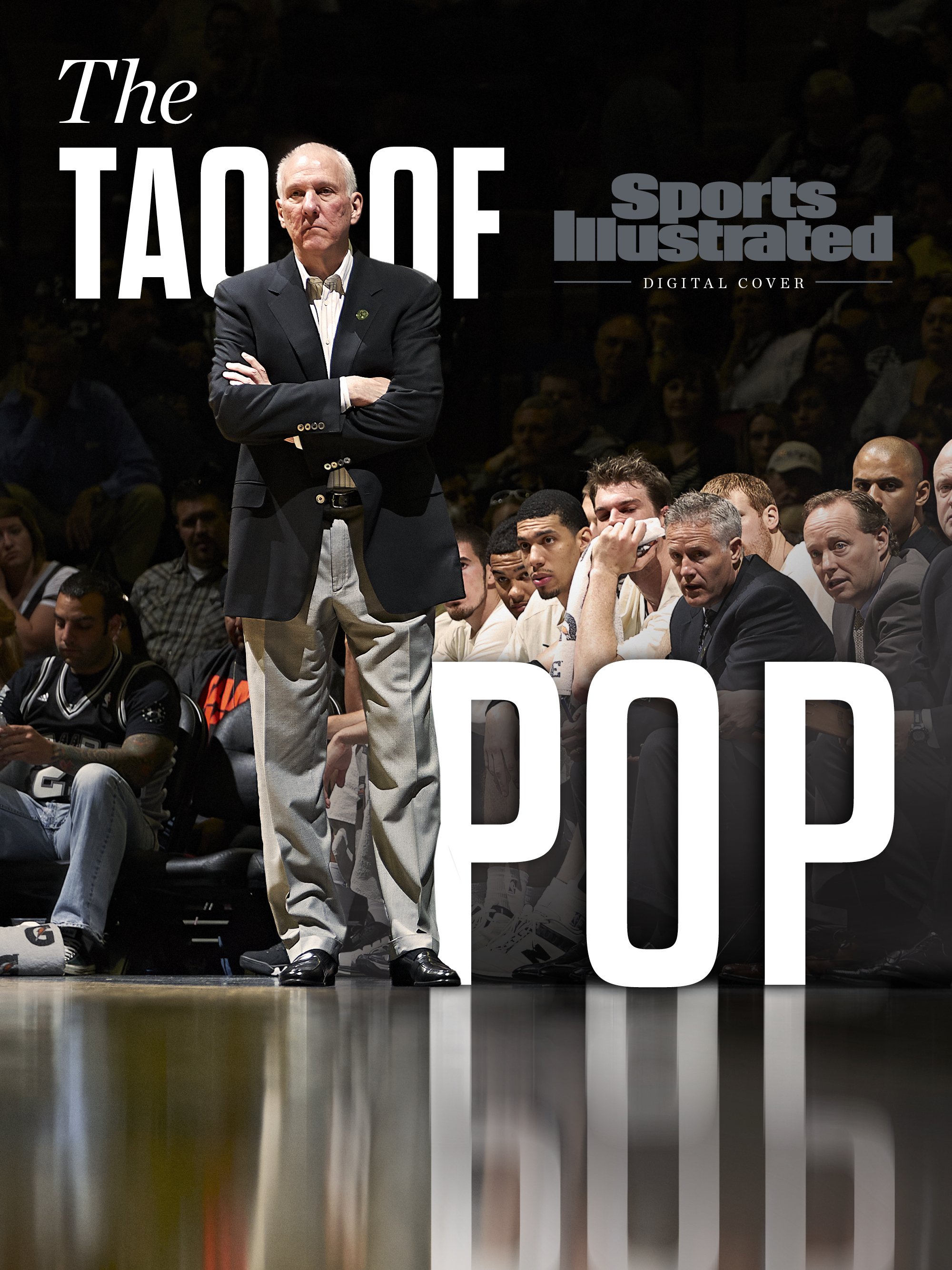By Son Trinh | Pounding The Rock (PtR), 2025-07-03 23:00:00
由生成式人工智能翻译,译文内容可能不准确或不完整,以原文为准。

克利夫兰没有墨西哥玉米片。
格雷格·波波维奇 (Gregg Popovich) 时而幽默风趣,时而又脾气暴躁,他像一位现代的 红衣主教奥尔巴赫 (Red Auerbach) 那样,统治着他的“领地”,几乎做出了所有重要的球队决策。马刺队在2002年任命了一位总经理, R.C.布福德 (R.C. Buford) ,这位 拉里·布朗 (Larry Brown) 的旧部,如今已是球队的首席执行官,他确实是一位出色的总经理。但即便布福德,也要听从唯一说了算的人。“我们都知道,最终的责任都在波波身上,”布福德不止一次地说道。
作为一名局外人,我们对 格雷格·波波维奇 (Gregg Popovich) 这样的公众人物了解有限。但据多位身处NBA内部人士的说法,令人欣慰的是,无论联盟乃至生活中发生多少变化,波波维奇的本色从未改变。名人堂篮球作家 杰克·麦卡勒姆 (Jack McCallum) 曾揭开橙色、粉色和青色幕布后的秘密,回顾了波波维奇早期担任总经理的岁月以及他在马刺队的NBA执教生涯。这篇扣人心弦的文章可点击这里阅读。
随着格雷格·波波维奇告别执教生涯,杰克·麦卡勒姆回顾了他的标志性成就:https://t.co/XbtAKfeKe1 pic.twitter.com/Sgdgt49dHZ
— Sports Illustrated (@ SInow) June 30, 2025
格雷格·波波维奇凭借五项基本原则定义了他在 圣安东尼奥马刺队 (San Antonio Spurs) 的遗产:(1) 纪律,(2) 选中 蒂姆·邓肯 (Tim Duncan) ,(3) 反其道而行之,(4) 建立并培养赢球文化,以及 (5) 谦逊地将功劳归于他人。第五项原则的突出方式与波波维奇寻求聚光灯的方式恰恰相反。在艰难的失利中,他会冲到最前面,回答尖锐的问题并承担所有责任。而在胜利(无论大小)时,你会看到他站在房间的后方,或者所有球员和助理教练的后面,低调地庆祝球队的成就。
相反,当 达拉斯牛仔队 (Dallas Cowboys) 在四年内第三次赢得超级碗,击败 匹兹堡钢人队 (Pittsburgh Steelers) 时,13岁的我清晰地记得 杰里·琼斯 (Jerry Jones) 和 巴里·斯威策 (Barry Switzer) 互相争抢着隆巴迪杯,无论是字面意义上还是象征意义上,都在争夺胜利的功劳。诚然,杰里·琼斯买下了牛仔队,解雇了传奇主教练 汤姆·兰德里 (Tom Landry) ,聘请了他的大学好友 吉米·约翰逊 (Jimmy Johnson) ,后者随后用 赫歇尔·沃克 (Herschel Walker) 交易来了选秀权,最终选中了 埃米特·史密斯 (Emmitt Smith) 、 拉塞尔·马里兰 (Russell Maryland) 、 达伦·伍德森 (Darren Woodson) 和 凯文·史密斯 (Kevin Smith) (是全职业碗角卫凯文·史密斯,而不是电影《耍酷一族》的创作者凯文·史密斯)。诚然,巴里·斯威策执教这支(由吉米·约翰逊组建的)球队在四年内赢得了第三个冠军,这在很大程度上得益于一个天赋异禀的阵容,他基本上没有把一手好牌打烂。然而,在全国电视上看到两个成年男人为一座奖杯争吵,在我早期的体育迷生涯中留下了难以磨灭的印记。
想象一下, 彼得·霍尔特 (Peter Holt) 和格雷格·波波维奇为奥布莱恩杯争抢,而 特洛伊·艾克曼 (Troy Aikman) 和 乔·巴克 (Joe Buck) 则在屏幕上解说这场争抢。相比之下,你更容易想象波波维奇接受三分球战术和场边采访。然而,请不要误解,尽管波波维奇务实谦逊,秉持着功劳归功于应得之人的理念,以及“赢球球员受赞誉,输球教练背黑锅”的信条,但他总能在机会来临时牢牢抓住。
作为总经理的格雷格·波波维奇在1996年令人印象深刻地解雇了备受喜爱(且成功)的主教练 鲍勃·希尔 (Bob Hill) 。只有对自己的能力充满信心的人,才有胆量解雇一位成名已久的NBA主教练,然后自己上任。然而,波波维奇的特点是,他可能大胆,但他始终务实。一切都直接了当,没有炫耀或过度的戏剧性。
格雷格·波波维奇有很多搞笑的瞬间,但这可能是我最喜欢的一个 pic.twitter.com/pPigbZjuF2
— Devon Birdsong (@ DevonBirdsong) May 2, 2025
虽然波波维奇经常说他所有的成功都归功于蒂姆·邓肯(足够幸运地选中了他,以及只是放手让他去打等等),但毫无疑问,波波维奇才是马刺王朝的缔造者——就像吉米·约翰逊是牛仔王朝的缔造者一样,只是戏剧性要少得多。
麦卡勒姆恰当地指出:
年复一年,马刺就是马刺,而马刺,最重要的是,就是波波。
普通球迷观察马刺王朝时,会看到蒂姆·邓肯稳定的卓越表现, 马努·吉诺比利 (Manu Ginóbili) 狂野的才华,以及 托尼·帕克 (Tony Parker) 高速的无畏。稍作深入探究,你就会发现这个基础始于格雷格·波波维奇。作为球迷,我们只能希望他不懈努力建立的一切,不会随着他从执教生涯中退役而终结。
点击查看原文:A look at Gregg Popovich’s lasting impact
A look at Gregg Popovich’s lasting impact

They don’t have nachos in Cleveland.
Sometimes sunny but more often splenetic, Popovich ruled his fiefdom like a latter-day Red Auerbach, making virtually all of the franchise decisions that mattered. The Spurs named a general manager in 2002, and R.C. Buford, another Larry Brown limb who is now the franchise’s CEO, was a good one. But even Buford deferred to the only man who mattered. “We all know the buck stops with Pop,” Buford said more than once.
As an outsider, there’s only so much we know about a public figure like Popovich. But by all accounts through various different people embedded in the NBA, it’s validating to know that while many things may change around him in the league or even in life, who Popovich is at his core never changed. Hall of Fame basketball writer Jack McCallum took a peak behind the orange, pink, and teal curtain and reflected on Popovich’s early GM years and his NBA coaching career with the Spurs. The captivating article can be found here.
As Gregg Popovich says goodbye to coaching, Jack McCallum takes a look back at his defining legacy: https://t.co/XbtAKfeKe1 pic.twitter.com/Sgdgt49dHZ
— Sports Illustrated (@ SInow) June 30, 2025
Gregg Popovich defined his legacy with the San Antonio Spurs on five basic tenets: (1) discipline, (2) draft Tim Duncan, (3) zag when others zigged, (4) establish/foster a winning culture, and (5) humbly give others credit. The fifth tenet sticks out in a way that Popovich does not when it comes to seeking the limelight. In tough losses, he would be at the forefront taking on the tough questions and taking all the blame. In wins (big and small), you would see him at the back of the room or behind all of his players and assistant coaches while celebrating the team’s accomplishments.
Conversely, when the Dallas Cowboys won their third Super Bowl in four years against the Pittsburgh Steelers, 13-year-old me distinctly remembered Jerry Jones and Barry Switzer grabbing the Lombardi trophy from each other, metaphorically and literally seizing credit for winning. Sure, Jerry Jones bought the Cowboys, fired legendary head coach Tom Landry, hired his college friend Jimmy Johnson, who then traded Herschel Walker for draft picks that would turn into Emmitt Smith, Russell Maryland, Darren Woodson, and Kevin Smith (Kevin Smith the All-Pro cornerback, not Kevin Smith the creator of Mallrats). Sure, Barry Switzer coached the team (that Jimmy Johnson built) to its third title in four years largely due to a roster full of talented players and basically not messing up a good thing by proverbially swerving the bus off the road. Nevertheless, watching two grown men fight over a trophy on national TV left an indelible mark on my early sports fandom.
Imagine Peter Holt and Gregg Popovich fighting over the O’Brien Trophy while Troy Aikman and Joe Buck telestrate the scuffle. It’s easier to imagine Popovich embracing the three-point shot and sideline interviews. Make no mistake though, for all of Popovich’s no-nonsense humility, give-credit-where-credit-is-due mentality, and mantra of “players get credit for wins while coaches get blamed for losses,” he seized an opportunity when it presented itself.
Gregg Popovich the general manager memorably fired popular (and successful) head coach Bob Hill in 1996. Only a person confident in their own ability would be brash enough to fire an established NBA head coach to hire himself. The thing with Popovich, though, is that he might have been bold, but he was still no-nonsense. Everything is straightforward and done without flash or excessive drama.
There are a lot of funny Gregg Popovich moments, but this might be my favorite pic.twitter.com/pPigbZjuF2
— Devon Birdsong (@ DevonBirdsong) May 2, 2025
While Popovich often said he owes all of his success to Tim Duncan (being lucky enough to draft him, just getting out of the way and letting him play, etc.), make no mistake that Popovich is the architect of the Spurs Dynasty—the same way Jimmy Johnson was the architect of the Cowboys Dynasty, just with waaay less drama.
McCallum duly noted:
Year after year, the Spurs were the Spurs, and the Spurs were, more than anything, Pop.
Casual fans observing the Spurs Dynasty will see Tim Duncan’s consistent excellence, Manu Ginóbili’s chaotic brilliance, and Tony Parker’s high-speed fearlessness. Dig a little deeper and you’ll find that the foundation begins with Gregg Popovich. We as fans can only hope that what he tirelessly built does not end with his retirement from coaching.
By Son Trinh, via Pounding The Rock
